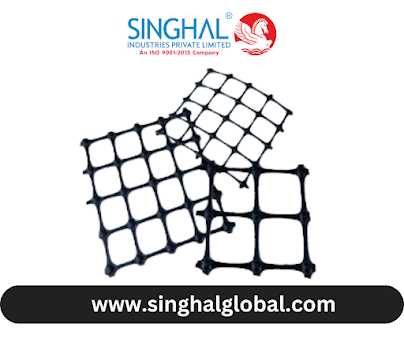From Production to Disposal: The Lifecycle of BOPP Bags
Biaxially Oriented Polypropylene (BOPP) bags have revolutionized the packaging industry, combining durability, versatility, and eco-friendliness into a single, effective solution. Singhal Industries Pvt Ltd, a leading BOPP rice bag manufacturer, has consistently delivered premium packaging solutions tailored to meet diverse industry needs. This article explores the lifecycle of BOPP bags, from production to disposal, while examining their benefits and environmental impact.
The Beginning: Production of BOPP Bags
The production process of BOPP bags starts with the creation of Biaxially Oriented Polypropylene film. This film undergoes a series of meticulous steps to achieve its characteristic strength and flexibility.
Step 1: Film Formation
The polypropylene resin is melted and extruded into a thin film. The film is then stretched in two perpendicular directions (biaxial orientation) to enhance its tensile strength and barrier properties.
Step 2: Printing and Lamination
The next phase involves high-quality printing. Manufacturers like Singhal Industries Pvt Ltd utilize advanced rotogravure or flexographic printing techniques, enabling precise and vibrant designs. Lamination follows, where the printed film is adhered to another layer for added durability and aesthetic appeal.
Step 3: Bag Conversion
The laminated film is then cut, folded, and stitched into bags of various sizes and shapes. Features such as handles, zippers, or perforations can be added based on customer requirements. BOPP bags manufacturers cater to sectors like agriculture, retail, and industrial packaging, offering customized solutions for grains, fertilizers, pet food, and more.
Real-Life Application: Use of BOPP Bags
BOPP bags are celebrated for their versatility. Here's how they are used across industries:
Agriculture and Food Packaging
As a reliable BOPP rice bag manufacturer, Singhal Industries provides durable packaging for grains, pulses, and seeds. These bags maintain freshness while protecting contents from moisture, pests, and damage.
Retail and Branding
Retailers prefer BOPP bags for their vibrant printing capabilities. Custom designs and brand logos enhance shelf appeal, creating a lasting impression on customers.
Industrial Use
Heavy-duty BOPP bags are ideal for packaging fertilizers, cement, and chemicals. Their robust structure ensures safe transport and storage.
Environmental Impact and Sustainability
One of the standout features of BOPP bags is their eco-friendly potential. While plastic often garners criticism for its environmental footprint, BOPP bags have a relatively sustainable lifecycle when managed responsibly.
Durability Reduces Waste
BOPP bags are long-lasting, reducing the need for frequent replacements. Their reusability minimizes single-use packaging waste.
Recyclability
Being made from polypropylene, BOPP bags are 100% recyclable. With proper sorting and processing, they can be transformed into new products, including other bags or industrial components.
Lightweight Design
The lightweight nature of BOPP bags lowers transportation costs and carbon emissions, making them a greener alternative to heavier packaging options.
End-of-Life: Disposal and Recycling
Responsible disposal of BOPP bags is crucial to their sustainability. Here's how their lifecycle concludes:
Recycling
Recyclers shred BOPP bags into smaller pieces, which are then melted and remolded into new products. Industries working with BOPP bag manufacturers encourage recycling initiatives to close the loop.
Energy Recovery
In some regions, non-recyclable polypropylene waste is used for energy recovery through incineration. This process captures the energy content of the material, contributing to renewable energy efforts.
Decomposition
Although polypropylene is not biodegradable, advancements in polymer technology are paving the way for biodegradable BOPP bags. These innovations aim to reduce the material's environmental impact.
Why Choose Singhal Industries Pvt Ltd?
As a leading BOPP bags manufacturer, Singhal Industries Pvt Ltd combines innovation, quality, and sustainability to deliver exceptional products. Their commitment to eco-friendly practices, coupled with cutting-edge manufacturing processes, makes them a trusted partner for packaging solutions worldwide.
Customizable Designs: Tailored to meet industry-specific needs, Singhal’s BOPP bags elevate branding and functionality.
High-Quality Materials: Using top-tier polypropylene resin ensures the bags are robust, reusable, and recyclable.
Sustainability Focus: Singhal Industries actively supports initiatives for recycling and reducing plastic waste, making their BOPP bags an eco-conscious choice.
Conclusion
From production to disposal, the lifecycle of BOPP bags highlights their immense value in modern packaging. Their versatility, durability, and environmental benefits make them a preferred choice across industries. With leading players like Singhal Industries Pvt Ltd, the future of BOPP bags promises even greater innovation and sustainability.
By choosing products from a reliable BOPP bags manufacturer, businesses can ensure high-quality packaging while contributing to a greener planet. Let’s embrace responsible practices in both production and disposal, ensuring a circular economy for BOPP bags and beyond.
Frequently Asked Questions (FAQs)
What makes BOPP bags better than other plastic bags?
BOPP bags stand out due to their strength, vibrant printing capabilities, and recyclability. They are ideal for heavy-duty applications while also serving as excellent branding tools. Unlike many plastic bags, BOPP bags can be reused and recycled, making them a more sustainable choice.
Are BOPP bags waterproof?
Yes, BOPP bags are highly resistant to moisture. The laminated film acts as a barrier, protecting contents from water, humidity, and other environmental factors. This makes them perfect for packaging grains, fertilizers, and chemicals.
How can BOPP bags be recycled?
Recycling BOPP bags involves collecting, cleaning, and shredding them into small flakes. These flakes are melted and reprocessed into new products. To ensure successful recycling, dispose of the bags at designated recycling centers or through municipal collection programs.


.png)
Comments
Post a Comment